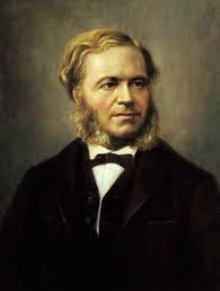Cesar Franck – Symphonic Poems (2004)
Cesar Franck – Symphonic Poems (2004)

1. Redemption – Morceau Symphonique 2. Nocturne pour contralto et orchestra Le Chasseur maudit – Poeme Symphonique 3. I. Le Paysage paisible du dimanche. Andantino quasi allegretto 4. II. La Chasse. L’istesso tempo – Poco piu animato – Poco meno vivo 5. III. La Malédiction. Molto lento 6. IV. La Poursuite des démons. Piu animato – Allegro molto – Poco piu allegro – Quasi presto Psyche - Poeme Symphonique 7. I. Sommeil e Psyche. Lento 8. II. Psyche enlevee par les Zephyrs. Allegro vivo 9. III. Les jardins d’Eros. Poco animato – Un peu plus large. 10. IV. Psyche et Eros. Allegretto modere 11. Les Eolides - Poeme Symphonique Christa Ludwig – mezzo-soprano (2) Orchestre de Paris Daniel Borenboim – conductor (1-10) L’Orchestre de la Suisse Romande Ernest Ansermet – conductor (11)
Le Chasseur maudit (The Accursed Huntsman) was inspired by the ballad Der wilde Jäger (The Wild Hunter) by the German poet Gottfried August Bürger. It tells the story of a Count of the Rhine who dares to go hunting on a Sunday morning, in violation of the Sabbath. As the piece begins, the count defiantly sounds his hunting horn, despite the warnings of the church bells and sacred chants which call the faithful to worship. Deep in the woods, the count is cursed by a terrible voice which condemns him to be pursued by demons for eternity.
Franck's orchestration perceptively evokes the dark, fantastic atmosphere of the infernal chase. The conclusion of the piece recalls the macabre Songe d'une nuit de sabbat of Hector Berlioz's Symphonie Fantastique (1830).
Les Éolides was written in 1876 and premiered the following year. Like the later Psyché, it is a symphonic poem based on the Greek classical mythology, in this case an episode in Homer's Odyssey. Eolus is the Greek god of the wind and the Éolides are the breezes which are sent by Poseidon to aid Odysseus in his return voyage. The work is of much more modest dimensions than Psyché. Unlike Le Chausseur Maudit, it is not obvious that the piece is the telling of a story. The 10-minute work is gentle throughout and without great changes in dynamics or mood. The orchestration is transparent, and the harp plays an important role. The thematic material is extremely chromatic but the work always maintains a clear feeling of major mode. Although three main themes could be discerned, they clearly inhabit the same harmonic and melodic world and consequently the piece could be considered monothematic. They appear successively and then simultaneously, a favorite device of the composer. An attractive mood piece, even if the personal style of Franck is not yet clearly discernible. ---AMG
download: uploaded anonfiles yandex 4shared solidfiles mediafire mega filecloudio divshare gett
Last Updated (Friday, 15 November 2013 17:44)








